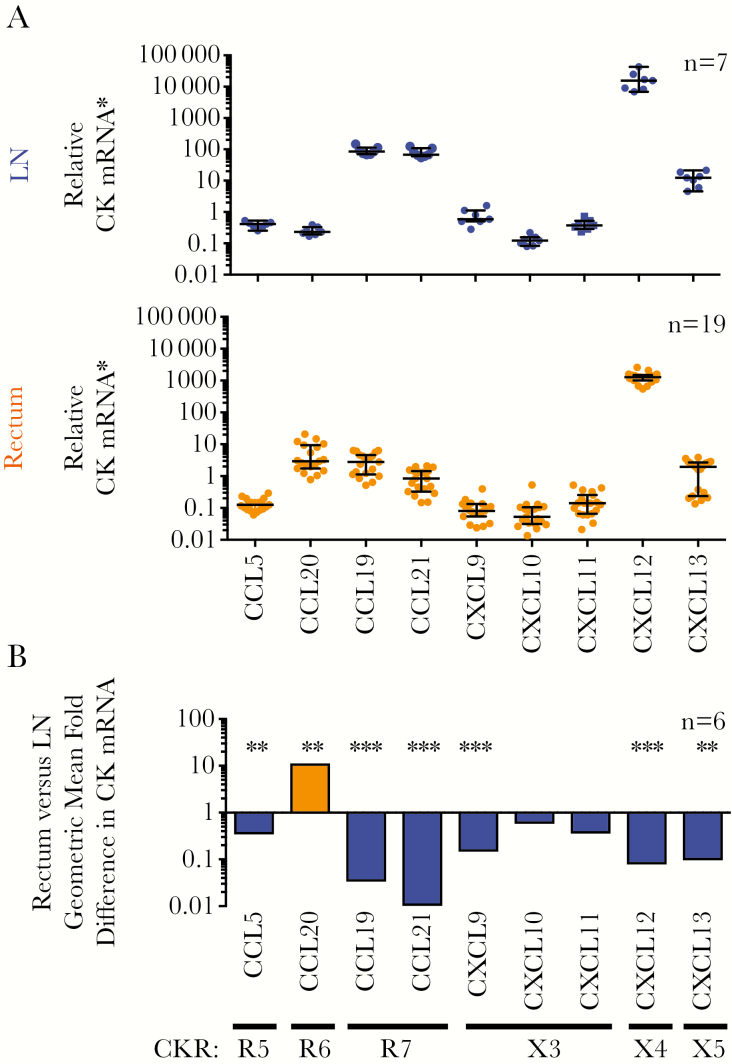Figure 5.
Rectal tissue (upper panel) is enriched in CCL20 messenger RNA (mRNA), and lymph node (LN) tissue (middle panel) is enriched in CCL19, CCL21, and other chemokine mRNA. A, Total RNA was extracted from rectal pinch biopsy specimens or LN biopsy slices collected from people living with human immunodeficiency virus (HIV) and receiving antiretroviral therapy. Next, 100-ng aliquots of total RNA were analyzed for chemokine mRNA or 18S ribosomal RNA (rRNA) expression using quantitative reverse-transcription polymerase chain reaction. Chemokine RNA levels were normalized to cellular 18S rRNA, and relative chemokine mRNA was calculated as the fold difference in samples relative to a calibrator (untreated peripheral blood mononuclear cells) from a healthy donor for most chemokines or liver tissue for CCL21 mRNA). Data are displayed as median and interquartile range, and each dot represents an individual donor. B, For participants who donated both rectal and LN samples (n = 6), the geometric mean fold difference in chemokine mRNA for rectal tissue compared with LN tissue is shown for each chemokine (vertical labeling). Chemokine receptors (CKRs) that bind chemokines encoded by the chemokine mRNA are also shown. Relative chemokine mRNA levels in rectal and LN tissue were log-transformed and compared using a paired t test (Supplementary Table 6). *P < .01; †P < .001. Abbreviations: R5, CCR5; R6, CCR6; R7, CCR7: X3, CXCR3; X4, CXCR4; X5, CXCR5.

